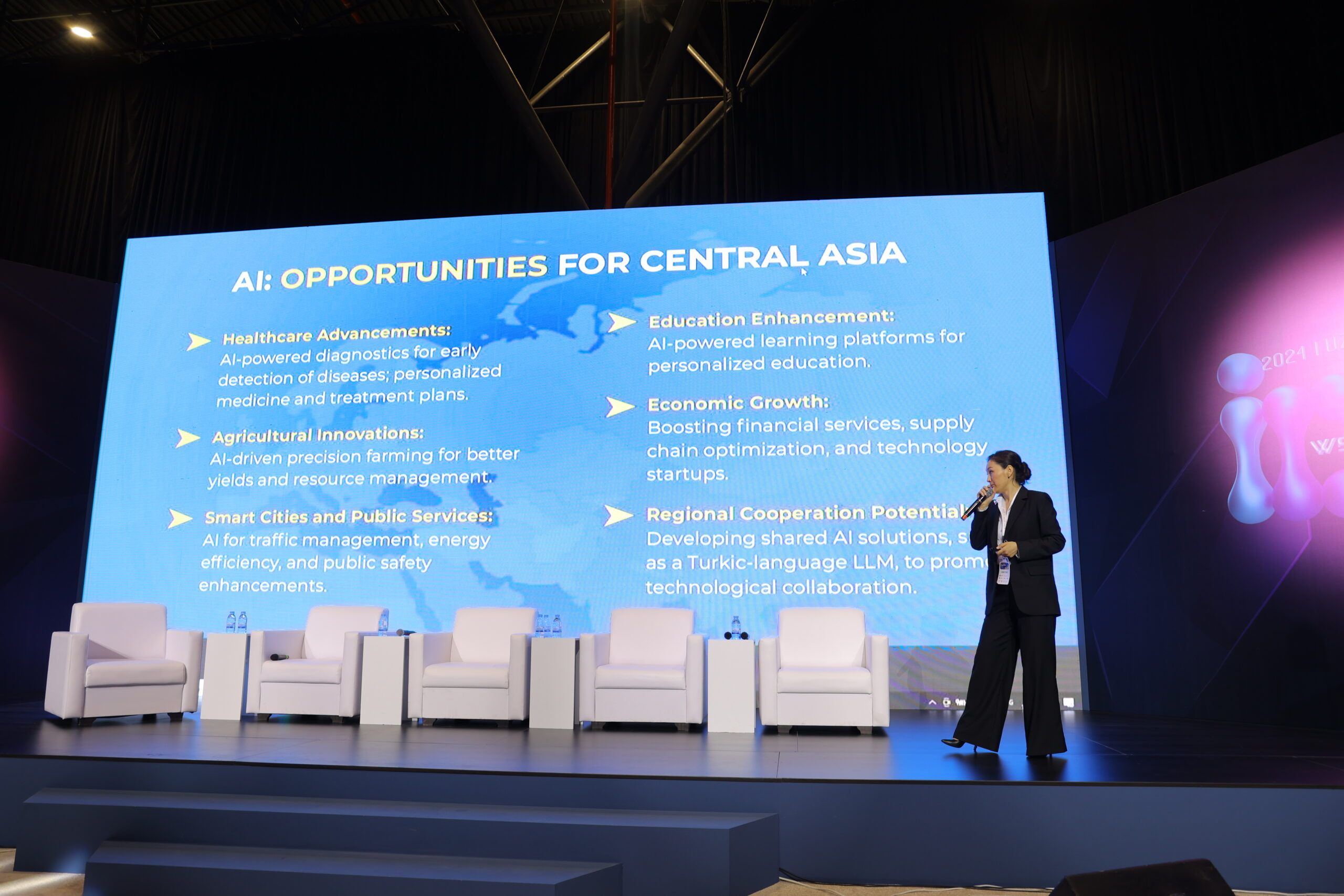On September 17, Aisuluu Kozhomkulova, Regional Director for Central Asia at StrategEast, delivered a presentation at ICT Week in Tashkent, a key event that brought together tech innovators, startups, investors, and policymakers to discuss the future of technology in the region.
During her presentation, Aisuluu focused on the key issues surrounding AI in Central Asia. She highlighted the potential threats posed by AI, such as the spread of misinformation and briefly touched upon the future of jobs and warfare, explaining how AI is transforming military technologies, including autonomous weapons and cyber warfare, raising ethical and security challenges that governments must address.
Cybersecurity threats and AI-driven surveillance were also discussed as growing concerns, particularly how AI can be used to monitor populations, invade privacy, and manipulate data. Aisuluu also addressed the issue of bias in AI algorithms, noting that poorly designed AI systems can perpetuate inequalities and discrimination, especially in areas like facial recognition and predictive policing.
As part of her speech, she referred to the AI Readiness Index 2023, which ranked Central Asian countries in terms of their AI preparedness. Kazakhstan leads the region at 72nd place, followed by Uzbekistan at 87th, Tajikistan at 111th, and Kyrgyzstan at 131st. She also discussed Responsible AI, highlighting how Uzbekistan has taken a proactive approach with a dedicated regulatory framework since 2021, focusing on human rights, responsible governance, and AI capacity building.
In concluding her presentation, Aisuluu outlined several recommendations for Central Asia’s governments to embrace AI. She emphasized the importance of adhering to global AI standards, such as UNESCO’s AI ethics guidelines, while ensuring local needs are considered. She also called for transitioning to cloud-first strategies to address infrastructure challenges, investing in AI education and skills development, and improving data quality through digitization. Aisuluu highlighted the need for public-private partnerships to advance AI capabilities and encouraged regional cooperation on shared AI projects, such as developing Turkic-language AI models. Finally, she stressed the significance of developing ethical frameworks to ensure AI is used responsibly, in alignment with human rights, transparency, and sustainability.
Participating in such crucial discussions StrategEast contributs to the future of AI and technology in Central Asia.




